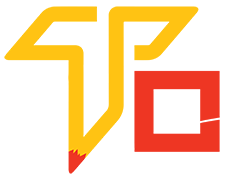Who this DCA Computer Course is for?
The DCA (Diploma in Computer Applications) course is typically designed for individuals who wish to acquire knowledge and skills in computer applications. It is a beginner-level program that introduces students to various aspects of computer science and applications.
The DCA course is suitable for: Beginners, Students, Job Seekers, Office Professionals, Entrepreneurs, Career Switchers, Computer Enthusiasts
Why take this DCA computer course?
There are several reasons why individuals may choose to take the DCA (Diploma in Computer Applications) course:
- Foundational Knowledge: The DCA course provides a solid foundation in computer applications, introducing students to various software tools and technologies commonly used in today’s digital world.
- Enhanced Employability: In many job sectors, basic computer skills have become essential. Completing the DCA course can make you more employable, as it demonstrates your proficiency in computer applications.
- Career Advancement: For those already employed, taking the DCA course can lead to career advancement opportunities within their current organization or other companies that require computer proficiency.
- Higher Education: The DCA course can serve as a stepping stone for further studies in computer science or related fields. It can be helpful for students planning to pursue more advanced degrees.
- Business Management: Aspiring entrepreneurs and small business owners can benefit from the DCA course as it equips them with the necessary skills to manage administrative tasks, maintain records, and improve overall productivity.
- Personal Development: Even for individuals not seeking professional advancement, the DCA course can be valuable for personal growth. It empowers them to use computers effectively in their daily lives for various tasks.
- Easier Adaptation to Technology: In this digital age, understanding computer applications is crucial for staying up-to-date with technology and navigating the online world efficiently.
- Practical Skills: The DCA course focuses on hands-on training, teaching students how to work with software like MS Office, spreadsheets, databases, and other applications they might use in their personal or professional lives.
- Cost-Effective: Compared to longer and more in-depth computer science courses, the DCA program is usually relatively shorter and more affordable.
- Flexibility: DCA courses are often available through various learning modes, such as online, part-time, or distance learning, making it convenient for individuals with other commitments.
What you will learn in DCA computer course?
What you will learn in DCA computer course?
Here are the common subjects and concepts you can expect to learn in a DCA course:
- Introduction to Computers: An overview of computer basics, hardware components, software types, operating systems, and computer organization.
- MS Office Suite: Proficiency in using Microsoft Office applications like Word (word processing), Excel (spreadsheets), PowerPoint (presentations), and Access (databases).
- Internet and Email: Understanding how to browse the internet effectively, use search engines, and manage emails.
- Computer Networking: Basics of computer networking, including LAN (Local Area Network) and WAN (Wide Area Network) concepts.
- Web Designing and HTML: Introduction to web design principles and basic HTML coding to create simple web pages.
- Computer Programming: Basic programming concepts, often using a programming language like C, C++, or Java.
- Database Management: Introduction to database concepts, design, and management using software like MS Access.
- Graphics and Multimedia: Basics of working with images, graphics, and multimedia elements using tools like Adobe Photoshop.
- Operating Systems: An overview of operating systems like Windows and Linux, including file management and system configurations.
- IT Security and Ethics: Understanding computer security threats, protecting data, and practicing ethical behavior in computer usage.
- Introduction to Accounting Software: Familiarization with accounting software for basic financial management.
- Introduction to E-commerce: Basics of electronic commerce, online transactions, and e-commerce platforms.
- Computer Hardware Maintenance: Essential knowledge about computer hardware troubleshooting, maintenance, and upgrades.
- Software Installation and Troubleshooting: Installing software applications and identifying and resolving common software issues.
- Data Backup and Recovery: Understanding data backup procedures and strategies for data recovery in case of data loss.
SALARY & PACKAGES
Computer Operator: Salary Range: ₹25,000 to ₹40,000 per year
Data Entry Operator: Salary Range: ₹20,000 to ₹35,000 per year
Office Assistant: Salary Range: ₹25,000 to ₹40,000 per year
JOBS & PROFILES
There are many job profiles are avaliable in varanasi & all over India. Such Job Profiles name is – Data Analyst Assistant, E-commerce Assistant, Computer Sales Representative, Software Support Technician, Desktop Support Technician, etc.
DCA computer course Syllabus detail
- Basics of computer hardware and software.
- Understanding operating systems.
- Introduction to various computing devices.
- Binary system and number conversions.
- Data representation in computers.
- Introduction to computer networks.
- Microsoft Office Suite (Word, Excel, PowerPoint, Access, etc.).
- Document formatting, spreadsheet operations, and creating presentations.
- Introduction to programming concepts and logic.
- Basics of programming languages like C, C++, or Java.
- Writing simple programs.
- HTML and CSS basics.
- Introduction to web development.
- Internet browsing and online communication.
- Understanding databases and their importance.
- Introduction to database design.
- Basic SQL queries for data retrieval and manipulation.
- Introduction to graphic design software (e.g., Adobe Photoshop).
- Understanding multimedia elements and their applications.
- Basics of data analytics and visualization.
- Using tools like Microsoft Excel for data analysis.
- Introduction to networking concepts.
- Understanding the Internet, LAN, and WAN.
- Practical application of the knowledge gained during the course.
- Working on a project that involves using various computer applications and tools.
